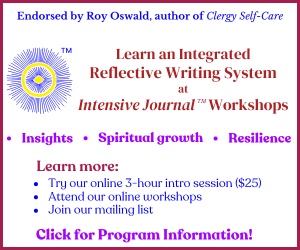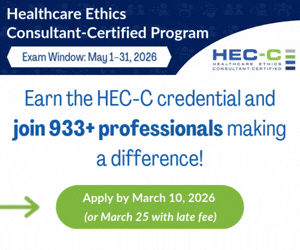FR1-01 ALS Values Assessment Guide: An Interdisciplinary Approach
Presented by Rev. Joe Green and Judith Wood Mintz
Overview
Guides candid explorations of the “what ifs?” and “what we don’t know?” as the disease increasingly impacts essential areas of functioning. This tool will facilitate an anticipatory approach instead of a reactionary approach to symptoms after they present themselves. As ALS does not affect any two patients in the same way, the understanding of the patient’s wishes and values, is essential in preparing them for what may come. Available as a free download under “Blog—for healthcare professionals” at unityhospice.com/ or youralsguide.com/ . We will provide free to all in attendance at the workshop printed hard copies of The Guide.
Handout Included: YES
FR1-02 Community Chaplaincy – A Model of Spiritual Care for the Unaffiliated, Marginalized, and Forgotten About Individuals Who Are On the Fringe of the Community
Presented by Rabbi Lynn Liberman
Overview
In many Jewish communities today, it is estimated that more than half of those of the Jewish faith do not affiliate or otherwise connect with the formal Jewish community. Yet, when such an individual faces a life ‘threshold moment’ such as a new diagnosis or having to leave a family home of 40 years to move into supportive housing, questions of faith and meaning arise. These individuals often experience significant challenges, not only physically but emotionally, including loneliness, loss of connection and capacity to cope in a very changed world. Community Chaplaincy brings the Jewish community to the individual.
Handout Included: YES
FR1-03 Long-term Care Chaplaincy: How Religious and Spiritual Care is Provided with Older Adults (R)
Presented by Kathryn Lyndes, Sarah McEvoy, and Louis Arata
Overview
This educational session offers participants the opportunity to interact with the research team, to understand and contribute to an important research project for religious and spiritual care in long-term care in the United States, and to recognize how religious and spiritual care needs are being met in long-term care in two states. Participants can share expert opinions and best practices for moving forward culturally competent spiritual care of diverse older adults.
Handout Included: YES
FR1-04 Mainstreaming Spiritual Care in Health Care Organizations
Presented by Kelsey White, Laura McClelland, and Marilyn Barnes
Overview
This workshop will review the findings from a John Templeton Foundation funded project. The project aimed to review existing evidence about how chaplains influence health service delivery as well as sought feedback from health administrators. The workshop will present the findings inclusive of the most robust chaplaincy interventions in the literature and where the literature suggests chaplains aid in health service delivery. We will also discuss what we heard from health administrators to develop strategies for strengthening chaplains’ integration
Handout Included: NO
FR1-05 Owning our Expertise: Pediatric Chaplains Involvement in Formal and Informal Ethics Consultation – Results from a National Survey
Presented by Cate Beaulieu-Desjardins, Tracy Nolan, Elizabeth Hawkins, and Calvin Bradley
Overview
Pediatric chaplains regularly report being involved in family medical decision-making and some are pursuing certification as HEC-C ethics consultants. Following a national study of adult chaplains’ formal involvement in ethics, the Pediatric Chaplains Network and Transforming Chaplaincy partnered to do research to understand how pediatric chaplains are involved in ethics – both formally and informally. The results of that research will be presented along with recommendations for better integration of ethics content into CPE and post-CPE professional education, and how chaplains can better advocate to be recognized for the significant role many already play in ethics consultations and medical decision-making in their organizations.
Handout Included: NO
FR1-07 Should Healthcare Chaplains Have Their Own Degree? Exploring the Future of Chaplaincy Education (R)
Presented by The Rev. David Fleenor
Overview
Should healthcare chaplains have their own specialized degree? This question guides an exploration of groundbreaking research from a Delphi panel study aimed at establishing curriculum standards for healthcare chaplaincy education. Participants will learn about key domains, knowledge, and skills identified by experts and examine how these standards can transform both academic and clinical pastoral education. We’ll delve into whether healthcare chaplaincy should become a distinct profession backed by a specialized degree, providing attendees with practical insights and strategies for advancing chaplaincy education and practice.
Handout Included: YES
FR1-08 Spiritual Care and Oncology in the Ambulatory Spaces
Presented by Rev. Dr. Dani Helm, David Huskisson, and Merrill Williams
Overview
The purpose of this workshop will be to share specifics relating to a collaboration and special partnership created between Oncology and Spiritual Care that focused on caring for patients in the clinic and home spaces. It is no secret that when a patient is diagnosed with an advanced form of cancer, significant spiritual and emotional turmoil are present both in the patient and their caregiver. The Oncology team expressed their desire for a quality improvement program with a specific and interactive form of spiritual and emotional support for patients (and their caregivers) who receive an advanced stage cancer diagnosis outside the hospital setting. This specific need invited collaboration with the Spiritual Care Team who created an ambulatory model of care to meet the expressed needs of the Oncology team and the specific spiritual and emotional needs of the patient and caregiver. Intentionality was given to creating a model that could also be used with critical diagnosis patients and caregivers across other service lines. Using the SCAI model of spiritual assessment as the foundation, patient and caregiver encounters with Chaplains were designed to foster spiritual and emotional well-being through reflection on meaning/purpose, relationships, transcendence/peace, and self-worth/identity. The partnership between Oncology and the Spiritual Care Team has increased communication and relationships on the interdisciplinary team and fostered a more robust understanding of one another.
Handout Included: NO
FR1-09 Spiritual Care Integration in the Mid-Sized Hospital: Immersive Partnerships of Support
Presented by Julie Cecil
Overview
In 150-400 bed hospitals, chaplains have the opportunity to be involved at deep levels, beyond just printing a census and seeing assigned patients. Through our partnerships at multiple levels, we can become integrated into the fabric of care. There are six foundations that can act as cornerstones for us, as we seek to integrate more intentionally. These partnerships are strengthened through Remembering, Reflecting, Representing, Remaining, Realigning/Reframing, and through Restoring. These touchstones serve as the basis for weaving a tapestry of care through the entire hospital in manageable and effective ways.
Handout Included: YES
FR1-10 The Diversity Of The Jewish Communities – Key Insights To Help Non-Jewish Chaplains When Working With Jewish Patients, Families, Staff
Presented by Rabbi Stephen Roberts
Overview
This interactive workshop will provide an understanding of the diversity of the US Jewish population and what that might mean for you as a chaplain in the provision of both Spiritual Care and Religious Care. The workshop will cover the following SFC: PPS2, PPS8, PPS10. This presentation is about providing basic knowledge about the Jewish communities that is almost never thought about or relied upon by those providing spiritual care to the Jewish communities but who are outside those communities. This knowledge will more fully allows you, as a professional chaplain, to meet those whom you provide services to – where they are!
Handout Included: YES
FR1-11 The Role of Spirituality & Religion in Living Donor Organ Transplants – A Review of the Literature (R)
Presented by Beth Muehlhausen, Collin Powell, and Charles Abuyeka
Overview
Houston Methodist is a national leader in organ transplant surgeries with one third of its patients waiting or receiving organ transplants. In order to understand the role of spirituality and religion in regard to living organ donation, a team of chaplains conducted a literature review of research that had been conducted from 2014 – 2024. Workshop participants will learn about the different types of literature reviews and how the research team determined which articles to include in the final manuscript. Research themes and implications for chaplains caring for living donors and organ recipients will be discussed.
Handout Included: YES
FR1-12 Trauma Recovery, Resilience, and Wellness for Chaplains
Presented by Captain Dan Willis
Overview
This presentation focuses on the nature of the traumas experienced by chaplains in their service that can injure the brain causing post-traumatic stress, depression, suicide, burnout, and a host of other psychological and emotionally distressing symptoms that can cripple a chaplain in their ability to be at peace, to maintain overall resilience and wellness, and to serve professionally with compassion and purpose in doing the greatest good. I detail several evidence-based strategies that can be practiced daily that strengthen resilience and enhance physical, mental, emotional, and spiritual wellness – I emphasize the essential value of practicing and improving spiritual resilience and wellness. I define spiritual wellness as our capacity to love, to be useful, to be helpful, to be driven by our heart with compassion to make a meaningful difference – it is our ability to do good and to consistently affirm the good within us. It is our ability to be connected to our colleagues – the community – and to the noble purpose of selfless service, and to have a higher purpose in our service beyond our self-interests.
Handout Included: YES
ONLINE VIDEO/AUDIO RECORDING RETURN POLICY
Effective as of: July 1, 2023
This applies to Annual Conference Recordings, Professional Education Webinar Recordings, Chaplain Symposium Recordings, and Webinar Journal Club Recordings.


